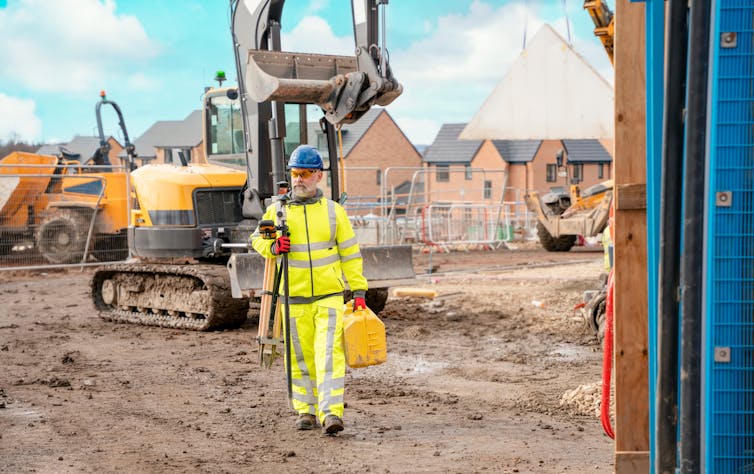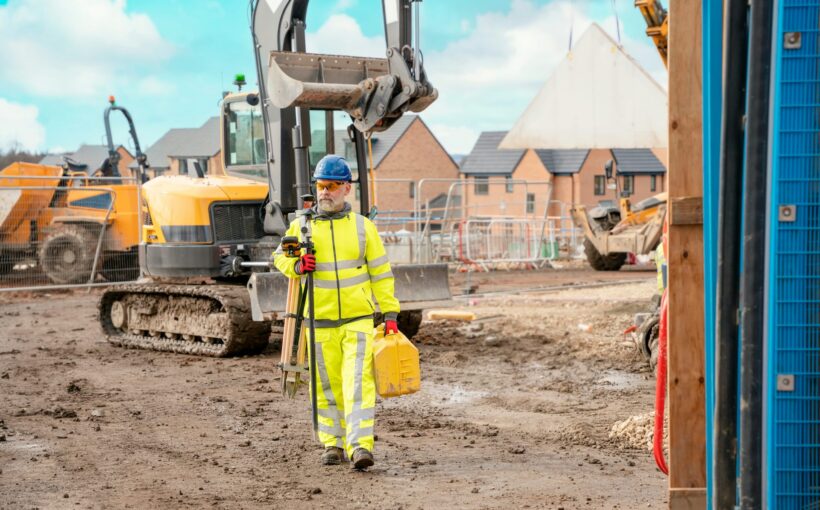We’re at around the midway point of the 2024 election campaign and the two main party leaders have undergone a grilling by Sky News. This was not a head-to-head debate but two separate interviews with Sky’s political editor Beth Rigby, followed by questions from the public.
Here we look over four of the policy areas that featured in the broadcast and assess how successfully the two leaders addressed the problems at hand.
1. Starmer: will Labour remove the two-child benefit cap?
Labour leader Keir Starmer was up first. He confirmed that he has no plans to end the two-child benefit cap. This will be a disappointment to those who had hoped Labour would change its position on this controversial policy before the election, after much pressure to to do so.
Currently in the UK, families can only claim benefits for two children. They receive no extra support for any subsequent children. An estimated 400,000 families are affected by this policy and experts have repeatedly warned that it makes the poorest families poorer, aggravating poverty rather than helping anyone. Experts writing for The Conversation over the years have been adamant that this policy is damaging and that Labour should not support it.
When the two-child limit was announced in 2015, 27% of children in larger families lived in low-income households, based on this measure, compared with 17% of children in smaller families. By 2019-20, after the introduction of the two-child limit, the larger family poverty rate had gone up to 37%. It remained at 17% for smaller families.
This can’t all be attributed to the cap but it has evidently played a part. Starmer says the decision is difficult but that the country currently can’t afford to lift the cap. There are arguments to be made that the policy punishes those in greatest need, however, and that he can’t afford not to lift it:
The End Child Poverty Coalition argues that scrapping the limit would be the most cost effective way of reducing child poverty, stating that for the estimated cost of £1.3 billion, a quarter of a million children would be lifted from poverty. If the Labour party is serious about breakding down the barriers to opportunity, abolishing the two-child limit should be the first thing they do, should they come to power.
2. Starmer: how can we get more NHS dentists?
An audience member raises the matter of dentistry and says she has been waiting for treatment for over a year. Starmer replied that this was a top priority for him and that he looks forward to getting on with dealing with this problem on his first day in government.
Starmer’s policies are to allow for 700,000 urgent appointments to be made available on the NHS and to incentivise dentistry graduates to set up practices in the NHS rather than the private sector.
Ian Mills, a professor in primary care dentistry, gave this problem a thorough examination a few months ago when the current government announced a fairly similar plan. His view was that recruiting more dentists sounds great, but dentistry is a five-year university course. The crisis is acute and in need of action long before the staff become available via such routes as extra training and incentives:
The UK has lower numbers of dentists per head of population compared with many other European countries. The UK has 5.3 dentists per 10,000 of the population compared with 6.5 in France, 8.3 in Italy and 8.5 in Germany.
Unfortunately for Starmer and Sunak, the solution in the immediate term, according to Mills, involves the one thing neither of them appears to want to do – making it easier to bring in more workers from overseas.
3. Sunak: is migration up or down?
Rigby dedicated a significant portion of her time with Sunak to discussing his immigration policies. She wanted him to explain why net migration continues to be so high even after the British people voted to “take back control” of their borders in the Brexit referendum.
Sunak agreed that he thinks the numbers are too high, which led Rigby to highlight that his party had been in charge while this had happened. She reeled off the proposals of prime ministers David Cameron, Theresa May and Boris Johnson and asked: “Why should anyone believe what you say on immigration?”
Rigby was, here, hitting on a big problem for Sunak. His party has been in power for 14 years and any questions about his promises for the future raise other questions about why those promises haven’t been met before now. There can be few better examples of this conundrum than immigration – an issue that his party has made a priority for years without appearing to make a dent in the numbers.
This comprehensive timeline of immigration policies under the Conservatives shows how we got here and why so many self-imposed targets were missed.
We begin with the Cameron administration, which pledged to “reduce net migration (the number of people coming to the UK to live, minus the number leaving to move elsewhere) from hundreds of thousands to tens of thousands.”
We learn that five years later, despite a raft of restrictive policies “the Conservatives headed into the 2015 general election with net migration 75,000 higher than they inherited”.
From May’s hostile environment to Johnson’s Australian-style points system, seeing the sheer number of policies set out in this way is stark. Erica Consterdine of the Sussex Centre for Migration Research ends her timeline in the present day, when:
With conflict in the Conservative party intensifying over immigration, the government brought in more dramatic restrictions in 2024. This included barring care workers and postgraduate international students from being able to bring their dependants, and increasing the salary threshold for skilled workers and family visas.
4. Sunak: when will housing be affordable again?
Audience member Ian asked about his daughter, who wanted to get on the housing ladder. Sunak promised that he intended to introduce a new help to buy scheme and would abolish stamp duty on homes under £425,000.
This was greeted by laughter in the audience and a withering response from Ian, who said: “To be honest Mr Sunak. I don’t think she was thinking of buying a house that expensive.”
This chimes with how our expert reacted when we asked him to analyse the plans for housing set out in the Conservative manifesto.

The manifesto places a heavy emphasis on home ownership but does not include commitments on making those homes affordable.
Recent research identifies a need for 145,000 new affordable homes each year but in 2022-23 only 63,605 such homes were delivered in England.
Nor does the plan include proposals on how to deal with the need for social housing or proposals on how to make housing developers deliver what is needed rather than what is profitable for them.
![]()



